Are you looking to improve your French language skills? One effective way to do so is by engaging in meaningful conversations. In this blog post, we provide a curated list of French conversation questions and answers to help you practice and enhance your French language proficiency.
Table of Contents
The Importance of Conversational Practice
Conversational practice plays a vital role in language learning. It helps you apply what you’ve learned in real-life situations, improving your fluency and confidence. Before we dive into the questions and answers, let’s understand why it’s crucial.
Immersion and Real-Life Context
One of the primary advantages of engaging in French conversation is the immersion experience it offers. When you converse with native or fluent speakers, you’re exposed to the natural flow of the language. You hear the way words are pronounced, the intonation used in different situations, and the colloquialisms that textbooks often don’t cover. This immersion in real-life context helps you develop an authentic understanding of the language.
Building Confidence
Conversational practice also plays a pivotal role in building your confidence as a French speaker. It’s normal to feel apprehensive when starting to speak a new language. However, the more you engage in conversations, the more you’ll find your confidence growing. You’ll become less afraid of making mistakes and more willing to express yourself in French. This increased self-assurance is a significant step toward fluency.
Fluency and Fluidity
Fluency isn’t just about knowing vocabulary and grammar; it’s about being able to use the language effortlessly. Conversational practice helps you achieve this fluency by improving your ability to think in French and respond quickly. When you practice regularly, you’ll find that you can express your thoughts and ideas more naturally, without struggling to translate from your native language.
Beginner Level French Conversation Questions and Answers
Let’s begin our exploration of French conversation questions and answers with topics tailored for beginners. These questions cover essential areas like greetings, introductions, and simple everyday situations. They provide an excellent foundation for those just starting their French language journey.
Greetings and Introductions:
Q1: Comment ça va ? (How are you?)
A1: Ça va bien, merci. Et toi ? (I’m doing well, thank you. And you?)
Hobbies and Interests:
Q2: Quels sont tes passe-temps préférés ? (What are your favorite hobbies?)
A2: J’aime lire des livres et écouter de la musique. (I like to read books and listen to music.)
Family and Relationships:
Q3: As-tu des frères et sœurs ? (Do you have any brothers or sisters?)
A3: Oui, j’ai un frère et une sœur. (Yes, I have one brother and one sister.)
These additional examples cover various aspects of everyday life, making your beginner-level conversations more engaging and comprehensive.
Intermediate Level French Conversation Questions and Answers
For those who have a grasp of the basics and are eager to advance their conversational skills, we’ve compiled intermediate-level questions and answers. These touch on diverse topics such as travel, hobbies, and personal opinions.
Travel and Leisure:
Q4: Quelle est ta destination de voyage préférée ? (What’s your favorite travel destination?)
A4: J’adore Paris. C’est une ville magnifique. (I love Paris. It’s a beautiful city.)
Food and Dining:
Q5: Quel est ton plat français préféré ? (What’s your favorite French dish?)
A5: J’adore la quiche lorraine. C’est délicieux. (I love quiche lorraine. It’s delicious.)
Engaging in discussions about travel, leisure, and food not only enhances your conversational skills but also provides you with practical knowledge for real-world interactions.
Advanced Level French Conversation Questions and Answers
For the linguists looking for a challenge, we’ve compiled advanced-level questions and answers that delve into complex topics like current events, philosophy, and culture.
Art and Culture:
Q6: Qui est ton artiste français préféré ? Pourquoi ? (Who is your favorite French artist? Why?)
A6: Mon artiste préféré est Claude Monet pour sa manière unique de capturer la lumière. (My favorite artist is Claude Monet for his unique way of capturing light.)
Philosophy and Ethics:
Q7: Quel est ton point de vue sur la philosophie existentialiste ? (What’s your view on existentialist philosophy?)
A7: Je trouve les idées de Jean-Paul Sartre très intrigantes. (I find Jean-Paul Sartre’s ideas very intriguing.)
These advanced examples cover a wide range of intellectual and cultural topics, allowing you to engage in profound and stimulating conversations.
Tips for Effective Conversational Practice
- Use Language Learning Apps: Incorporate language learning apps and online resources into your practice routine for structured learning and reinforcement.
- Join Language Exchange Groups: Find language exchange partners or groups to practice speaking with native speakers. Websites and apps like Tandem or ConversationExchange can be helpful.
- Record Yourself: Recording your conversations or monologues allows you to review your progress and identify areas for improvement.
Conclusion:
In your journey to becoming proficient in French, remember that consistency is key. Embrace opportunities to converse in French whenever possible, whether with native speakers, language exchange partners, or even by talking to yourself. Language learning is a rewarding endeavor, and as you engage in conversations, you’ll discover the joy of connecting with others through the beautiful language of French. Bonne chance dans votre apprentissage ! (Good luck with your learning!)





